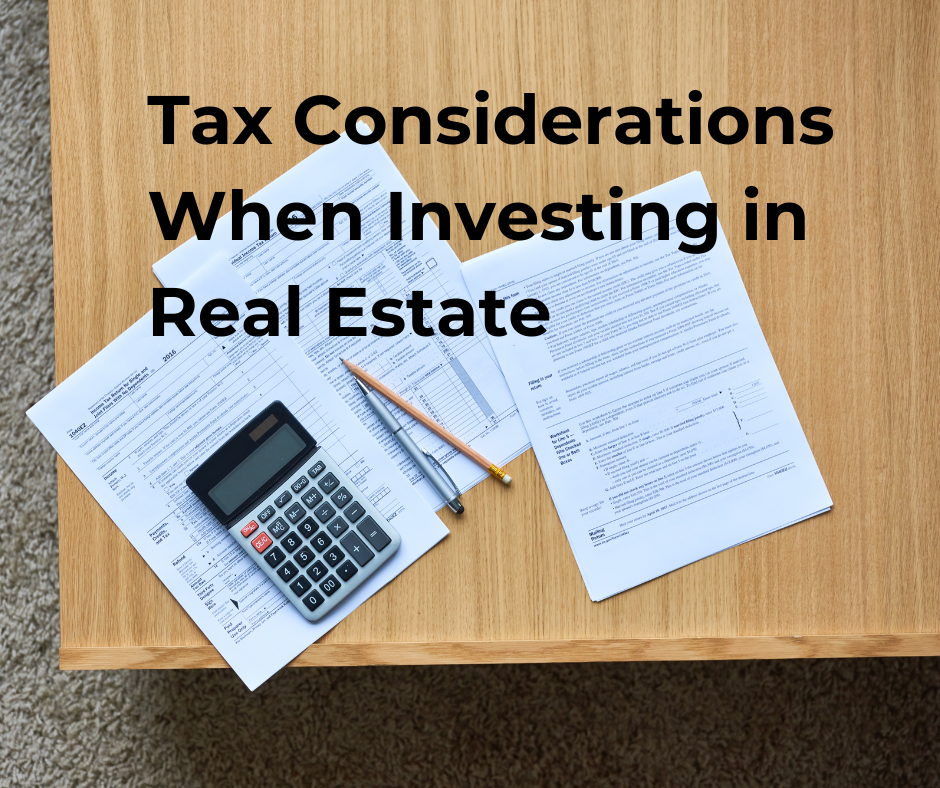
Investing in real estate can be one of the most powerful ways to build wealth—but if you’re not planning for taxes correctly, you could be losing a huge chunk of your profit. Whether you’re flipping houses, renting out properties, or using seller financing, it’s important to understand how taxes impact your bottom line.
Here’s breakdown of some of the most important tax considerations for real estate investors:
Rental income is considered taxable, but the good news is that the IRS allows you to deduct a wide variety of expenses related to maintaining and managing your rental property. This includes:
Pro tip: Depreciation is especially powerful—it allows you to deduct the cost of the building (not the land) over 27.5 years, even if the property is increasing in market value. This non-cash deduction can significantly reduce your taxable income on paper, which is a win for your wallet.
When you sell an investment property for more than you paid, you’ll likely owe capital gains tax. The amount you pay depends on how long you held the property:
Strategy tip: If you’re flipping houses quickly, you’ll likely face short-term gains. Holding properties longer can reduce your tax rate substantially.
Proper planning can help you qualify for long-term capital gains treatment, saving you thousands in taxes.
A 1031 Exchange allows you to sell an investment property and reinvest the proceeds into another “like-kind” property—without paying capital gains taxes at the time of sale.
To qualify, you must:
This is a great strategy for building long-term wealth, as it allows you to upgrade properties and grow your portfolio without taking a tax hit.
With seller financing (also called owner financing), you act as the bank and allow the buyer to make payments to you over time. This not only creates steady monthly income, but also gives you a tax benefit.
Instead of paying capital gains tax all at once, you’re taxed gradually as you receive payments—this is called the installment sale method. It’s a great way to spread out your tax burden while earning passive income.
This can:
Talk to a tax pro if you’re considering offering or accepting seller financing—there are some nuances to get right.
The IRS treats passive and active real estate investors differently. If you’re a passive investor, you can only use real estate losses to offset passive income. But if you qualify as a real estate professional, you can deduct more (even up to the full amount).
To qualify, you must:
Achieving this status opens the door to bigger deductions and the ability to offset other types of income, like wages or business income.
If you’re flipping houses or wholesaling contracts, your income is considered active income (not passive), and it may be subject to self-employment tax (about 15.3%).
This is different from rental income, which generally avoids self-employment tax.
Pro tip: Many flippers and wholesalers form an S Corporation to reduce their self-employment tax burden. With proper structuring, you can take part of your earnings as salary (taxed normally) and the rest as a distribution (not subject to self-employment tax).
While depreciation reduces your taxable rental income each year, there’s a catch when you sell: the IRS may require you to “recapture” that depreciation and pay tax on it, up to 25%.
This is called depreciation recapture, and it can be a surprise if you’re not planning for it.
Again, a 1031 exchange can help you defer both capital gains and depreciation recapture taxes.
Taxes are one of the biggest expenses you’ll face as an investor—but also one of the most controllable. By understanding the tax strategies available to you and planning ahead, you can keep more of what you earn and grow your portfolio faster.
Find a good tax planner to help structure your deals in a tax-smart way. The right professional can help you use tools like depreciation, 1031 exchanges, and seller financing to your advantage—not just during tax season, but every step of the way.
Visit Us
Cogswell Ave, Pell City, AL, 35128